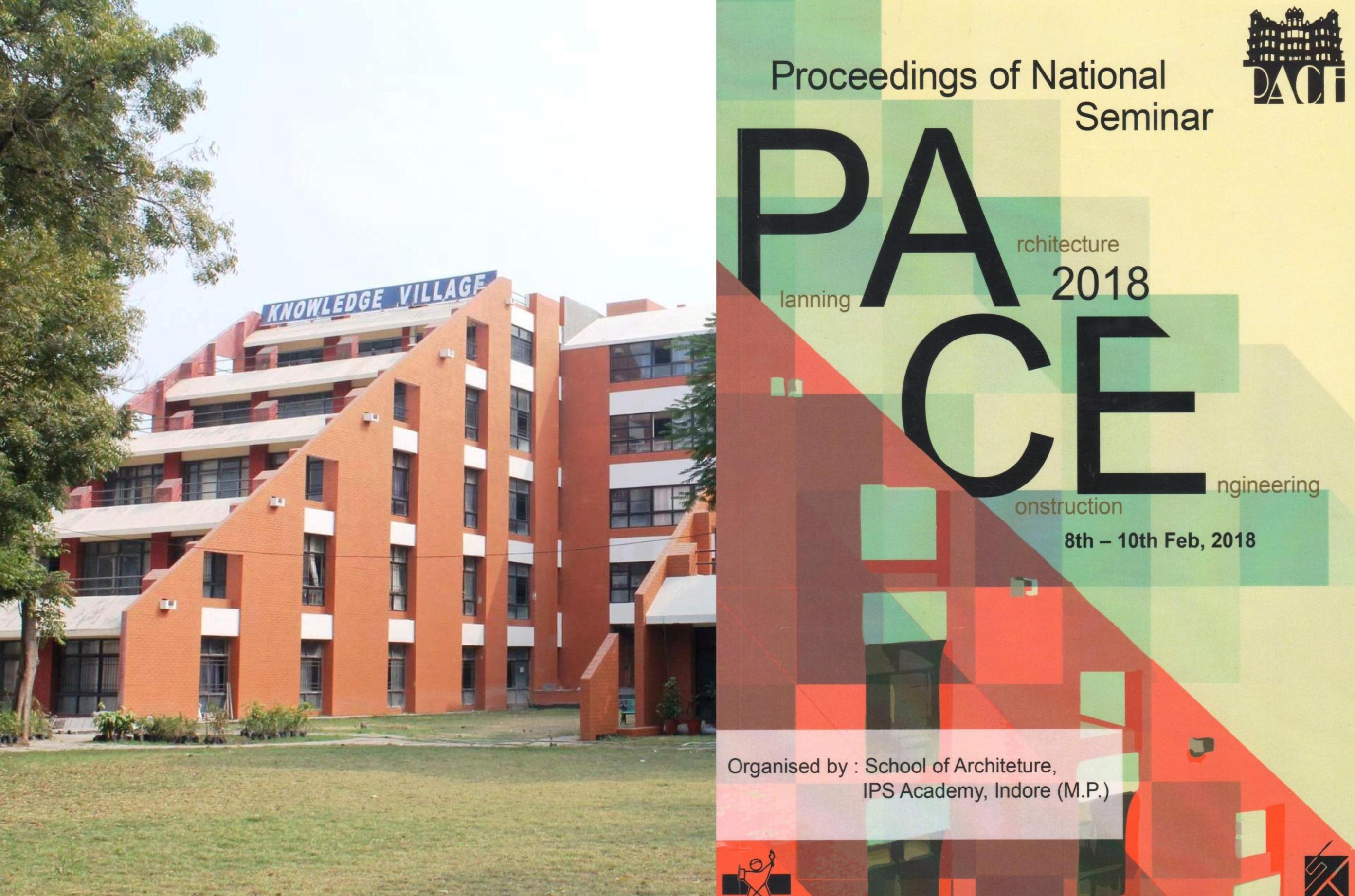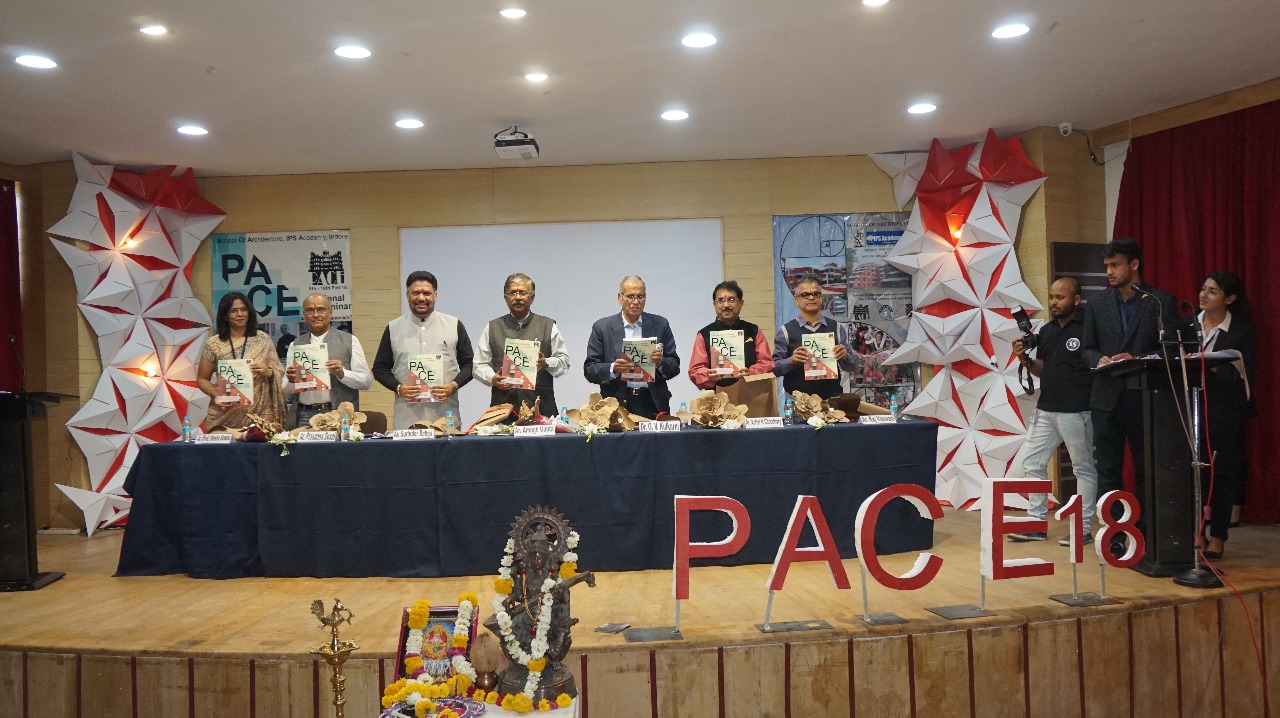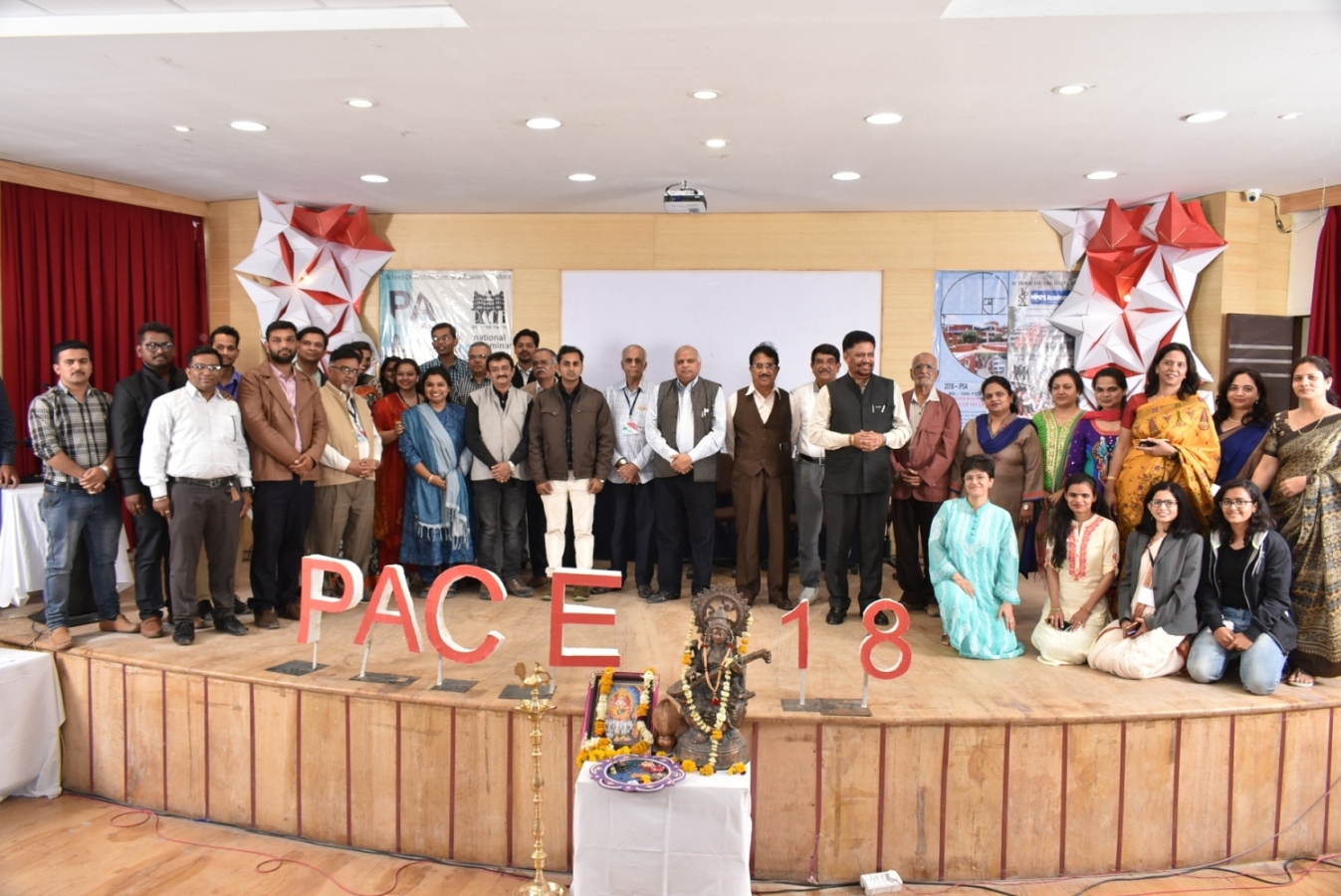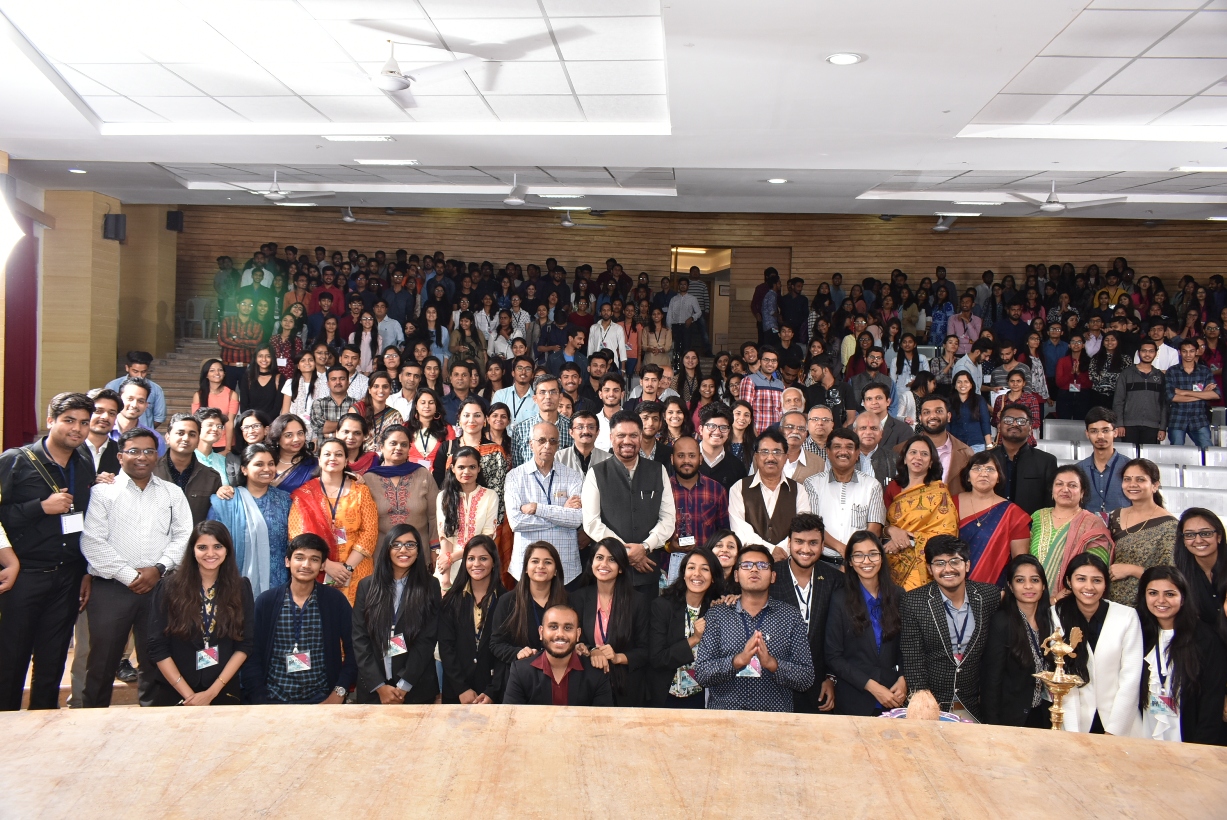Submitted by Sarbjit Bahga
National seminar "PACE 2018" held at Indore
India Architecture News - Mar 03, 2018 - 19:11 18937 views

A 3-day National Seminar of Planning, Architecture, Construction, and Engineering - "PACE 2018" was held from 8th to 10th February, 2018 at School of Architecture, Indore Professional Studies Academy, popularly known as IPS Academy, Indore. The seminar was intended to create an international platform for discussions, dialogues and debates to disperse knowledge about all the aspects that contribute into the making of a habitable environment. It was consisted of various paper-reading sessions and talks by chosen Keynote Speakers from all over the country besides exhibition and prize distribution.
About 40 research papers were received for the seminar. These papers were lavishly published in the form of a book titled, "Proceedings of National Seminar PACE 2018". This 306-page book published by White Falcon Publishing is an excellent compendium comprising well-researched papers on diverse subjects related to planning, architecture, construction and engineering. The book was launched on the first day of the seminar in the presence of more than 300 delegated.

Among the Keynote Speakers in the seminar were architects Prasanna Desai, Yatin Pandya, Vijay Garg, Surinder Bahga and Minakshi Jain.
Prasanna Desai emphasised the need to focus on '3Ps' in city planning i.e., People, Places, and Public Transport. He explained that, "Streets occupy about fifteen to twenty per cent of our urban open space and we use them to help connect communities. Thus these need to be planned and designed very meticulously." He quoted Fred Kent's statement, "If you plan cities for cars and traffic you get cars and traffic. If you plan cities for people and places, you will get people and places." Prasanna also laid stress to evolve the design with people's participation for better quality of life for citizens in urban neighborhoods.
Yatin Pandya deliberated on "Adding Value Through Design". He said, "Design is not about finding an answer to a question. It is about asking many questions, finding many answers to each of these questions and picking one answer that answers most of the questions." He opined that, "Design is about discretion. It is about values. About abilities to discern between appropriate and inappropriate. It is about appropriateness to the given milieu of the place as well as its people. Design does matter, as it is the alchemy of the prevailing forces of culture, climate and construction, an integrated vision, of functional, cultural, constructional, environmental, economic as well as aesthetic values."
Vijay Garg elaborated on the "Role of Architects in Nation Building". He said, "Our honourable Prime Minister has set himself on the noble mission for driving the 'Make in India' to the world. While this mantra is going to project India at the threshold of Emerging Global Superpower, it is also a call for rejuvenating the domestic Industry. To support the mission, the time is right for positioning our profession back in the leadership role in the domestic Construction Industry for providing/upgrading Infrastructure at par with the Global standards." Garg discussed ways and means of how can architects become the key players in making the Prime Minister's goal of 'Make in India come true as a movement for the Construction Industry for igniting the young minds and the mighty of the profession alike?"
Surinder Bahga delved on "Climate-Responsive Architecture". He said, "World is facing real energy crisis. The buildings consume 52% of the total energy in terms of their construction, use and maintenance. With the world witnessing a major environmental crisis, the concept of Sustainable Building Design has come to the forefront particularly in the last two decades." He further explained that, "The concept of climate-responsive design is related to Green Buildings and involves the use of principles that are in conformity with nature, rather than against it. It involves a dynamic change in the way we design our modern structures. Well-designed buildings go a long way in reducing operational costs by avoiding resource wastage. Environment-friendly buildings are increasingly becoming popular and may grow over three times in next few years, thereby offering new opportunities to the beleaguered Construction Industry. The buildings should be designed in such a way that they conform to the particular climatic type."
Minakshi Jain laid stress on "Landscape and Ecological Considerations in Architectural Design Processes." She elaborated that, "Over the years, it has been observed that there seems to be a constant interaction between nature and the designed landscape. Often the designed landscape is the outcome of a balanced and easy conversation between the habitat or space and the aspirations, needs and beliefs of the society. If green spaces are not adequately located while planning, cities will become heat sinks and eventually becoming unsuitable for habitation."
Enthused by the success of the seminar, the authorities of IPS Academy, Indore are contemplating of making it a regular biennial feature.


All images courtesy of IPS Academy
> via PACE
